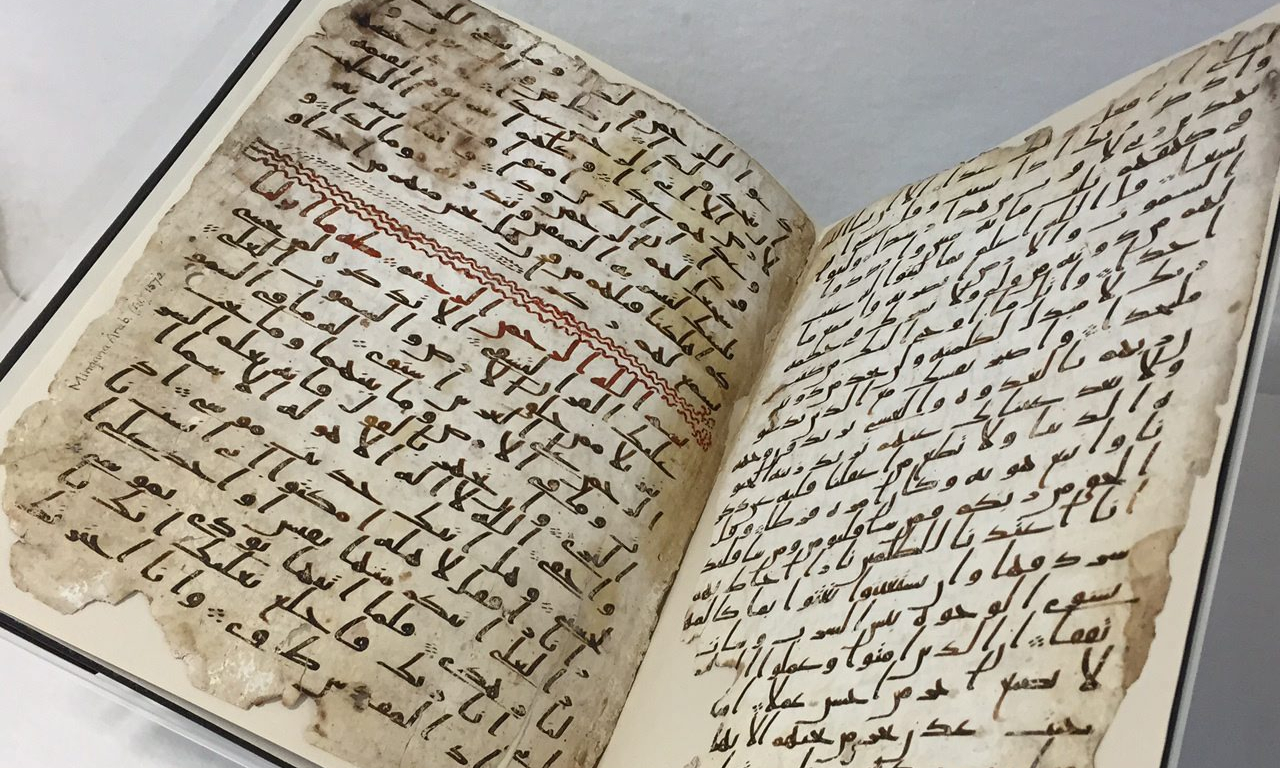Putting on my historian hat for the moment.
In Birmingham, fragments of a Qur’an dating to the 7th century have been discovered in a collection at the university there, making this one of the oldest known Qur’ans in existence. (The headline says “oldest,” but the article is not as definitive.) The Carbon-14 dating may put its creation to within a decade of Muhammad’s life.
There’s an issue this Qur’an may raise, and it’s one the BBC article doesn’t raise. It’s possible that it doesn’t textually match the Qur’an as we now know it. And that would have some rather profound implications.
Muslims believe that the Qur’an is the literal word of god as dictated to Muhammad by the Archangel Gabriel and then transcribed by those who had memorized it after his death. The Qur’an, as we know it, was assembled into its final form some decades after Muhammad’s death. Was it revised or expanded during its assembly? There is very little textual criticism of the Qur’an or analysis of how it was written and created; to suggest that the Qur’an is anything other than god’s inerrant word is heretical. Some scholars have attempted textual analysis of the Qur’an. Many have had to work anonymously out of fear for their lives.
The thing is, inscriptions of the Qur’an from the sixth and seventh centuries differ from the official Qur’anic text, as do a cache of ancient Qur’ans discovered in Yemen in the 1970s. The Qur’anic inscriptions in the Dome of the Rock in Jerusalem, for instance, do not match the Qur’an.
So, I’m curious to what extent, if any, the extant pages of this seventh century Qur’an in Birmingham differs textually from the Qur’an as Muslims currently know it. Are there slight differences? Are there entirely new verses? The Guardian‘s article on the discovery says, “The text is almost identical to that used today, but the parchment is so old that scholars may reconsider the accepted date for the compilation of the definitive text.”
This is a possibility that the age of the Qur’an raises. Coming, as it does, from the time of the Qur’an’s creation, it may suggest the form of the Qu’ran took in those early years. And, depending on how much it varies from the accepted text, it may run the risk of offending Muslims who might not take kindly to the idea that the Qur’an is anything less that the perfect word of god. But for scholars interested in the creation and textual history of the Qur’an, this is an incredible find.
